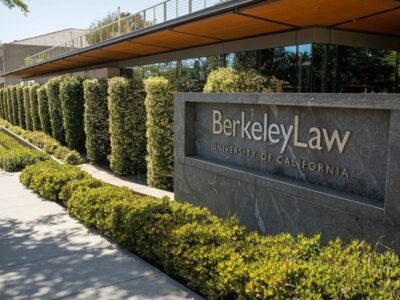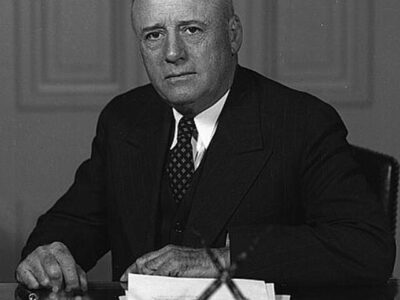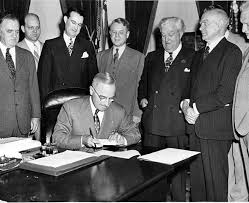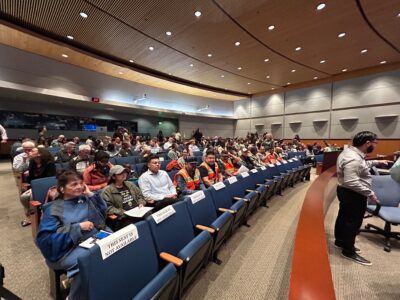Regulation
What Do Bureaucrats Maximize?
New research demonstrates that governments can reduce intractable emissions problems — if they have the right incentives
It’s no secret that Delhi has perhaps the worst air quality in the world, and it’s also no secret that crop-burning in nearby agricultural areas is one of the principal causes (along with topography). But what can you do about it? It’s illegal already, but because crop-burning is a cheap and effective way to get rid …
Continue reading “What Do Bureaucrats Maximize?”
CONTINUE READINGDear 2025 1L:
Avoiding a climate disaster isn’t something today’s students can plan on tackling “over the course of their careers.” The most critical time will be the next fifteen years, which means you’ll need to get to work quickly.What we do together between now and 2035 will determine what your lives look like in 2050 and 2080, and what your children and grandchildren will see in the next century. So grab your books, get yourselves ready, and be prepared to head for the trenches when you graduate. No time to waste!
CONTINUE READINGWhy Repeal the Endangerment Finding?
The aims may be overturning Mass v. EPA and avoiding new rulemakings.
Much will be said about the weakness of the various justifications EPA and the Department of Energy offered yesterday about why greenhouse gases do not endanger public health and welfare under the Clean Air Act. Those justifications are, indeed, remarkably weak. For example, DOE’s argument that economic damages appear to be lower than economists estimate …
Continue reading “Why Repeal the Endangerment Finding?”
CONTINUE READINGHow To Beat A Jackass
Trump’s destruction of the federal government poses a hard question: how to quickly stand up robust institutions?
Sam Rayburn served nearly a half-century as a Congressmember, and still holds the record for the longest tenure as Speaker of the House. So he knew a thing or two about government. One of his aphorisms speaks powerfully to our age: “Any jackass can kick a barn down, but it takes a carpenter to build …
Continue reading “How To Beat A Jackass”
CONTINUE READINGDon’t Panic About the Supreme Court’s Ruling on Universal Injunctions
The Court left open a variety of workarounds. At least for the now.
In a case involving birthright citizenship, Trump v. CASA, the Court limited the power of judges to issue universal injunctions that protect everyone subject to an illegal government policy. President Trump hailed this outcome as a great victory, and it does provide more maneuvering room for him and future presidents. But the Court’s reasoning does not implicate most judicial rulings about the legality of regulations. The Court also left open some important questions that will be furiously litigated in the lower courts or the Supreme Court itself.
CONTINUE READINGThe Emperor’s New Endangerment Theory (Wrap-Up)
Trump’s EPA says carbon emissions from U.S. power plants are too insignificant to regulate.
U.S. power plants emit 1.5 billion tons of carbon dioxide a year, a little less than the entire country of Russia. The Trump Administration is proposing to end all regulation of carbon emissions by power plants, on the theory that these emissions should be considered insignificant. They have some complicated legal arguments , but the arguments break down the more closely you look at them.
CONTINUE READINGCan Public Ownership Fix Our Electricity Woes? It’s Complicated
New UCLA report “Power Struggle: California’s Electric Utility Ownership Dilemma” by Sylvie Ashford, Mohit Chhabra, and Ruthie Lazenby
This post is co-authored by Sylvie Ashford and Mohit Chhabra. California’s investor-owned utilities (IOUs) are under intense scrutiny for causing deadly wildfires and charging some of the nation’s highest electricity rates. Adding to these challenges, IOUs are required to make significant clean energy and grid investments to achieve the state’s goal of a net zero …
Continue reading “Can Public Ownership Fix Our Electricity Woes? It’s Complicated”
CONTINUE READINGThe Most Important Law Most People Have Never Heard Of
Here’s how the APA bolsters the rule of law and protects the environment.
Even the title of the law — the Administrative Procedure Act or APA — is a guaranteed yawner. Yet this law is central to the rule of law and, among other things, to environmental protection. We are learning from the current Administration’s efforts to evade the APA just how important it is. The APA requires reasoned decisions by government. More fundamentally, the requirements of legal and procedural regularity prevent the arbitrary use of government power to reward friends and punish foes.
CONTINUE READINGWhy Did SoCal Air Regulators Reject Clean Air Rules?
SCAQMD’s failure to pass Rules 1111 and 1121 on water heaters and furnaces is a win for gas industry disinformation and a loss for public health.
After 6 hours of public comment and discussion in a packed auditorium, Southern California air quality regulators on Friday rejected a pair of proposals that would have reduced harmful pollution from gas furnaces and water heaters. I watched a livestream of the 6-hour meeting (and provided live updates and commentary on Bluesky). Here’s context and …
Continue reading “Why Did SoCal Air Regulators Reject Clean Air Rules?”
CONTINUE READINGEnvironmental Rollbacks: Will the Trump Administration Overplay Its Hand?
The odds are good that Trump agencies will go too far out on a limb.
The Trump Administration’s tendency to rely on bold legal arguments rather than detailed technical ones is a disadvantage in court. Courts defer to agencies on factual matters, especially those that involve technical expertise. Now that Chevron has been overruled, however, legal arguments by agencies don’t get the same deference. Thus, the chances of a judicial reversal are higher when the agency relies on purely legal grounds.
CONTINUE READING













